It’s becoming more and more popular to learn to code through online platforms rather than traditional classes, courses, or educational institutions. But with the number of platforms to choose from, it’s often difficult to know where to start.
Two of the biggest platforms for learning to code online are Udemy and Udacity. Both of these offer a variety of online coding courses, but they also function very differently in terms of price, quality standards, course variety, and more.
Luckily, we’ve put together this comprehensive guide to how Udemy vs Udacity stack up to each other in a variety of categories to help you make a fully informed decision and pick the best learning platform for you. We’ll also comment a bit on how these two compare to other platforms like Zenva to help further these objectives.
Let’s get started!
Table of contents
Udemy vs Udacity: Course Variety
One important factor in choosing the right platform is knowing that there’s enough variety in the online courses on offer to learn everything you want to. Here’s how Udacity and Udemy stack up when it comes to course variety.
Udemy
The fact that almost anyone can create a course on Udemy means that there’s an absolutely staggering number of courses on offer, covering a huge range of subjects. It’s fairly safe to say that you can find courses on pretty much any coding subject you want on Udemy.
On the other hand, the huge amount of choice on offer can sometimes make it hard to choose which courses to take. It’s best to go in with a clear idea of what you want to learn so you can narrow down your search and pick out the right options.
Udacity
Udacity’s courses are much more highly curated than Udemy’s, being produced by Udacity’s in-house instructors and production team. Since the platform has a business and technology focus, there’s a good variety in the subjects you can learn about.
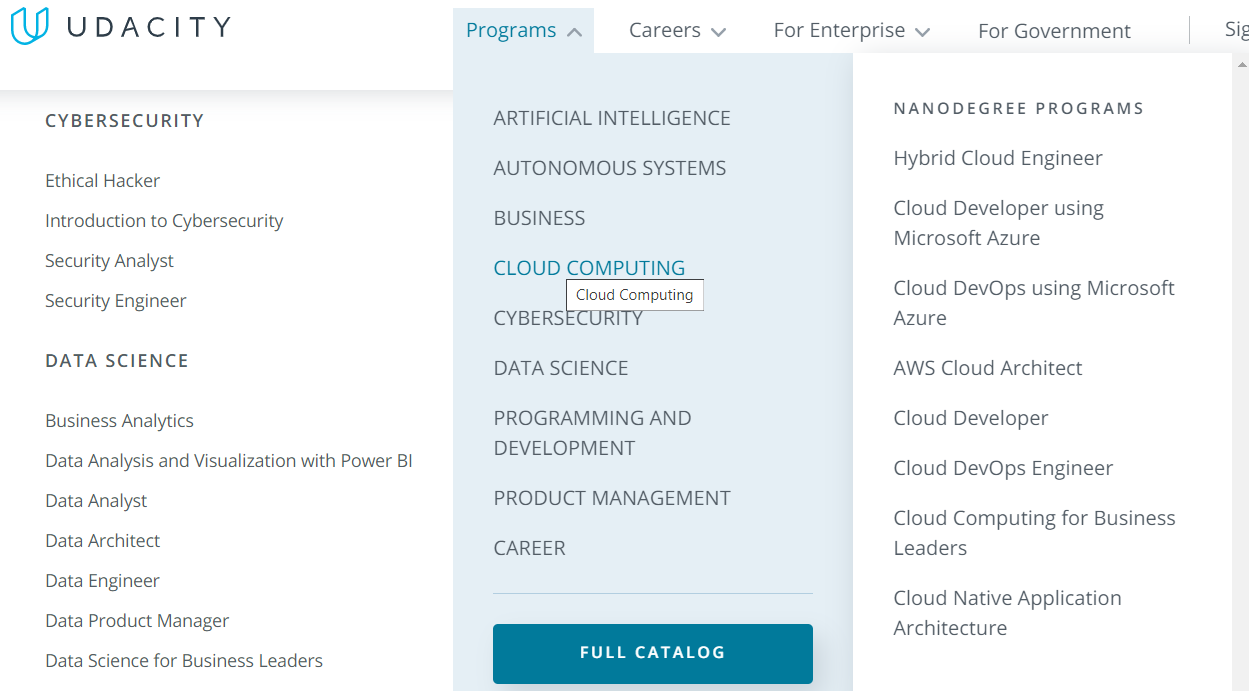
However, while Udemy may offer multiple online courses on the same subjects, Udacity generally offers less choice – so if a course doesn’t fit your learning style, you may not have an alternative for that subject.
Verdict
While both platforms offer a good amount of variety in the subjects they teach, Udemy is the clear winner in this category due to the sheer number of courses on offer. No matter your learning style, you’re bound to find a course that suits you and your requirements. That said, Udacity’s focused approach isn’t terrible for the reasons outlined in the next section. Much like platforms like Zenva (which specializes in game development for the most part), it can lead to more quality assurance.
Udemy vs Udacity: Course Quality
Course variety is one thing, but it’s equally important that the courses you take online are actually useful and effective in teaching you the coding skills you need. Let’s take a look at how Udacity and Udemy compare in terms of course quality.
Udemy
Just as the course variety on Udemy is huge, so is the variability in quality. Almost anyone can create courses on Udemy, and there’s no guarantee they’ll make those courses to a high standard.
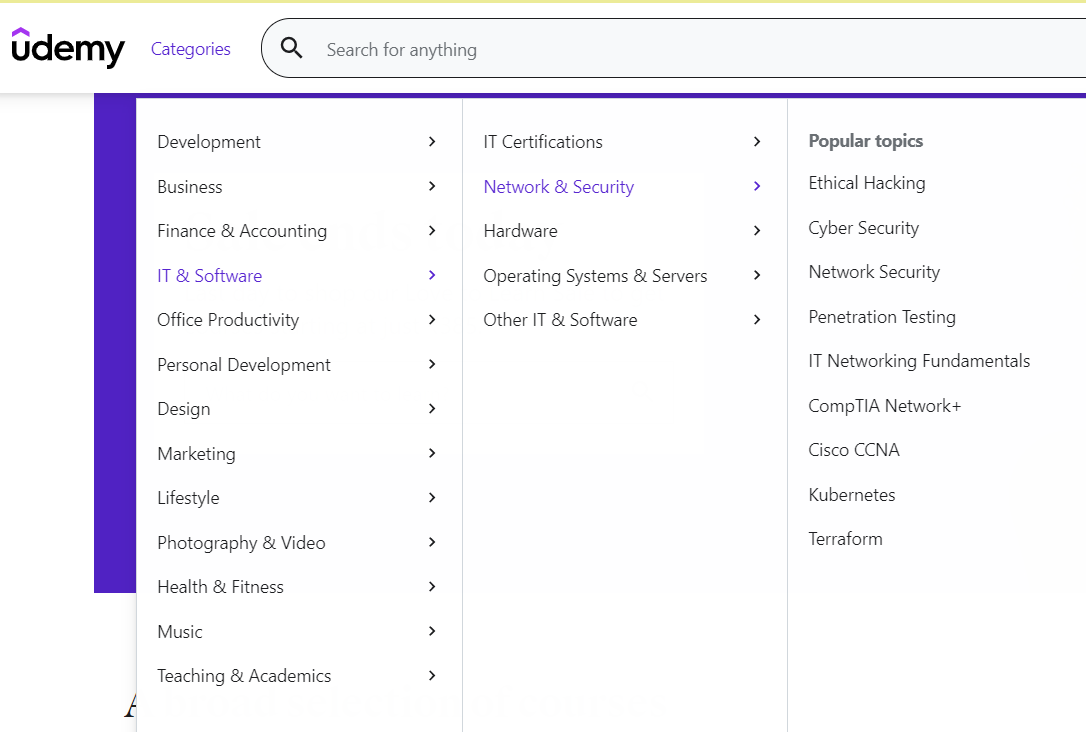
The signup process for creating paid courses involves very little vetting, so production values and the quality of teaching can vary hugely depending on which instructor’s course you choose. There are user reviews to guide you to more effective courses, but it can still be very hit-and-miss finding the highest quality courses.
Udacity
Unlike Udemy, Udacity heavily vets its instructors and mentors to ensure their courses are all produced to a very high standard. Where Udemy goes for quantity, Udacity invests in quality, curating courses to create a tighter, higher-quality selection.
Udacity also partners with industry leaders like Google and AWS to provide expert insights from experienced professionals in the tech world, helping boost course quality even further.
Verdict
Udacity is the leader when it comes to course quality thanks to its more highly-curated course selection and investment in specialist insights. Udemy does have high-quality courses among its offerings, but you’ll likely have to sift through a lot of more mediocre content before you find them. Udemy’s lack of quality assurance also stands in stark contrast to other platforms like Zenva as well – which carefully crafts and curates each course for users.
Udemy vs Udacity: Course Relevancy & Updates
Coding is an ever-evolving field, so it’s important for learning platforms to regularly update their online courses to keep them relevant to new developments. Udemy and Udacity handle these updates very differently – here’s how they compare.
Udemy
On Udemy, course updates are left entirely up to instructors – they can update courses with new and relevant information whenever they choose. That doesn’t mean that they will update them, however – many instructors will simply create a course and then leave it as-is without any new updates.
On the other hand, the fact that there are so many instructors creating new courses means that it isn’t hard to find new, up-to-date courses even if older courses become outdated.
Udacity
Udacity constantly updates its courses to ensure they remain relevant and up-to-speed with current industry standards. As well as updating and correcting their existing lessons, they regularly add new lessons to courses to keep them relevant.

The only downside is that the process for reporting outdated course materials is fairly opaque, so it can sometimes be hard to flag up any issues you find.
Verdict
When it comes to relevancy and updates, Udacity is the safer bet compared to Udemy. Udacity’s processes ensure that courses are regularly updated to ensure you get the maximum benefit from them.
Udemy does provide modern, updated courses, but it’s entirely reliant on instructors to put the effort in and updating courses themselves, so it’s less reliable than Udacity in this regard.
As for other platforms, we find the same mixed approach. Platforms like Zenva offer the same regular updates, whereas other platforms with a more mixed batch of instructions don’t.
Udemy Vs Udacity: Accessibility
Another important factor to consider is whether you’ll actually be able to use the platform’s course materials. Different learners have different requirements, such as materials in languages other than English, captions on videos, or lessons in non-video formats.
With this in mind, how do Udacity and Udemy perform when it comes to accessibility measures?
Udemy
As with many other factors, accessibility in Udemy is largely down to what individual instructors provide. Some instructors do provide non-English lessons and courses, while others may provide subtitles in different languages.
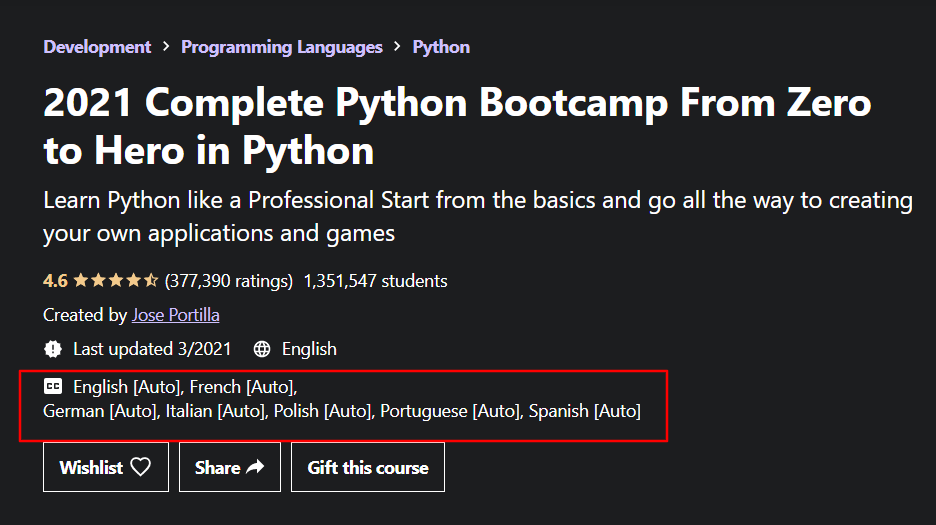
Captions aren’t a standard requirement even in English-language courses, however, and when they are implemented they’re often auto-generated, which can lead to inaccuracies. Moreover, many courses are provided only as video lectures, which may make things difficult for learners with visual or hearing impairments.
Udacity
Udacity provides closed captioning with every course’s video materials as standard, sometimes in non-English languages. Selected courses are also available in a handful of other languages like Spanish or Mandarin Chinese.
Moreover, Udacity’s website is generally effective when it comes to following accessibility guidelines, making it easier for learners with specific requirements to make full use of the platform.
Verdict
While instructors on Udemy may provide courses with accessibility features to fit the needs of different learners, as with many other factors the inconsistency of the platform means it’s not a safe bet by any means.
As such, if you have specific accessibility or language requirements, then Udacity is the more reliable choice.
We will note accessibility has become increasingly important as other platforms, like Zenva, have begun to emphasis accessibility and more and more so that every user can learn.
Udemy Vs Udacity: Ease Of Use
Online learning platforms are the most effective when they’re easiest to use – so it’s important that they include features that cater to different learning styles and schedules.
This is especially the case for beginners, who need a clear idea of where to get started so that they can hit the ground running and make a solid start with their learning. Let’s take a look at how easy to use Udacity and Udemy are.
Udemy
Udemy’s course variety is both a positive and a negative for ease of use. On one hand, there are courses to cater to every learning style, making it easy to get started with your learning. On the other hand, this choice may be overwhelming, and there’s no clear framework to help you decide where to start.

In terms of usability features, Udemy boasts a handy mobile app with offline video playback to help you learn on the go. You also get lifetime access to courses, meaning there’s no time pressure to complete them – enabling you to learn at your own pace and schedule.
Udacity
Udacity is fairly beginner-friendly, with a number of beginner-level courses to get stuck into and clear frameworks for progression. However, the platform focuses more on intermediate-level learning – so while there are clearer guides for progression, the learning curve may be fairly steep.
While Udacity’s site is mobile-responsive, their mobile app no longer exists, having been taken down in 2019. This might make it less appealing for users whose schedules mean they regularly need to learn on the go.
Verdict
This category is a tough call – Udemy has the edge for learners who want to learn on the go and at their own pace, but Udacity offers clearer progression and more streamlined course selections that can avoid some of the overwhelming choice on Udemy. As such, it’s a tie when it comes to ease of use.
This said, with increased emphasis around responsiveness for websites, apps aren’t necessarily all they’re cracked up to be. Platforms like Zenva, for example, put extensive effort into mobile responsiveness so they could focus on making clearer learning paths as well.
Udemy vs Udacity: Community & Support
For many people, learning isn’t a solo activity – they need input from mentors and other learners for the best experience. So how well do Udemy and Udacity support collaborative learning and mentorship?
Udemy
Yet again, Udemy leaves it up to instructors how much additional support they provide beyond the courses themselves. Each course has a Q&A function allowing learners to ask instructors questions about the course content, but it’s up to the instructor to respond. Other users can also browse past Q&As for answers.
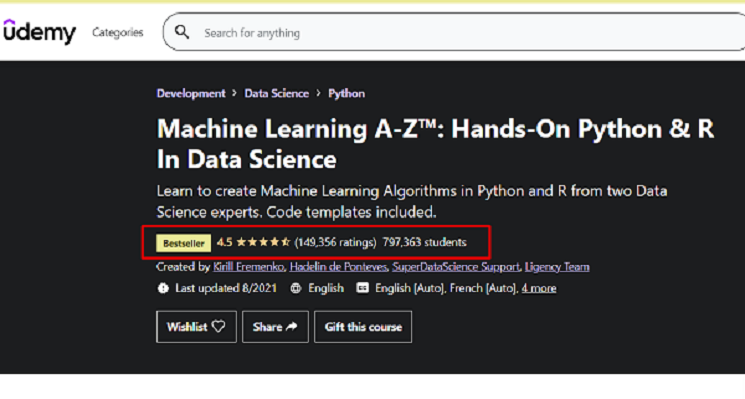
Learners can also leave reviews of specific courses to help other users choose the right course. There’s not much else in the way of a learning community, though – while there is a Udemy Community forum, this is for instructors rather than learners.
Udacity
Udacity courses offer additional membership alongside course materials, meaning learners can access personal guidance if they need it. This doesn’t apply to free users, however.
Udacity also features a Support Community forum where you can seek advice from other users and instructors. However, there isn’t much in the way of learner reviews – the testimonies featured on front pages are more for promotion than gauging course quality.
Verdict
Both platforms could do better in terms of community – Udacity with reviews, Udemy with a proper learning community forum – but Udacity is the winner when it comes to support. Mentorship provision on Udacity means you can receive a much more personal, guided learning experience than on Udemy.
Udemy is especially disappointing in terms of support, however. Plenty of other platforms, Zenva to name one, offer at least some support (in Zenva‘s case, through available course mentors to answer questions regardless of course).
Udemy Vs Udacity: Prices
How good a learning platform is means nothing if you can’t actually afford it to begin with. This is one of the categories with the biggest differences between Udemy and Udacity – so let’s unpack what you get for your money with each platform.
Udemy
Udemy courses are well-suited to learners on a budget, ranging from $10-100 with frequent discounts meaning you can often access courses for even less. Moreover, you only pay once for lifetime access to an online course, giving you great value for money and avoiding pressure to complete a course in a given timeframe.
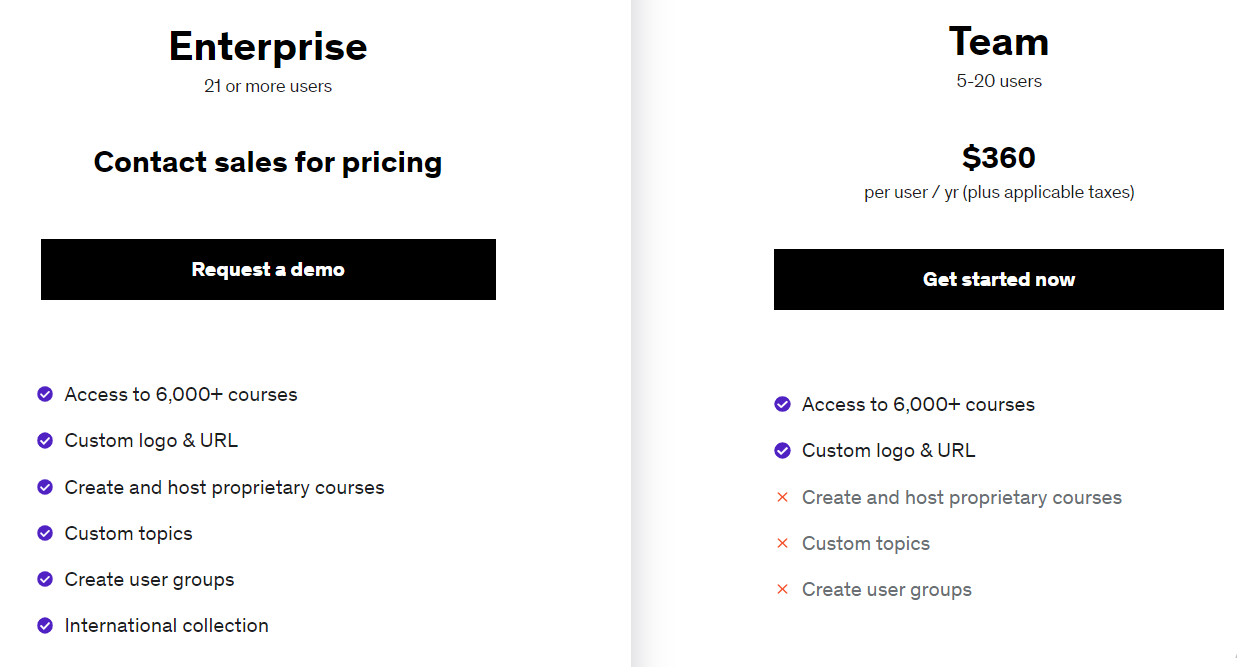
What’s more, Udemy offers a 30-day money-back guarantee for all its courses. This means that there’s less risk of wasting your money if an online course isn’t what you expected it to be or if it doesn’t cater to your learning style.
Udacity
Udacity’s premium content comes with a premium price tag, with most courses costing $399 per month. With courses ranging from 2 to 6 months, this adds up to an expensive investment. There are free courses available, but these don’t give you access to mentorship or certain other features.
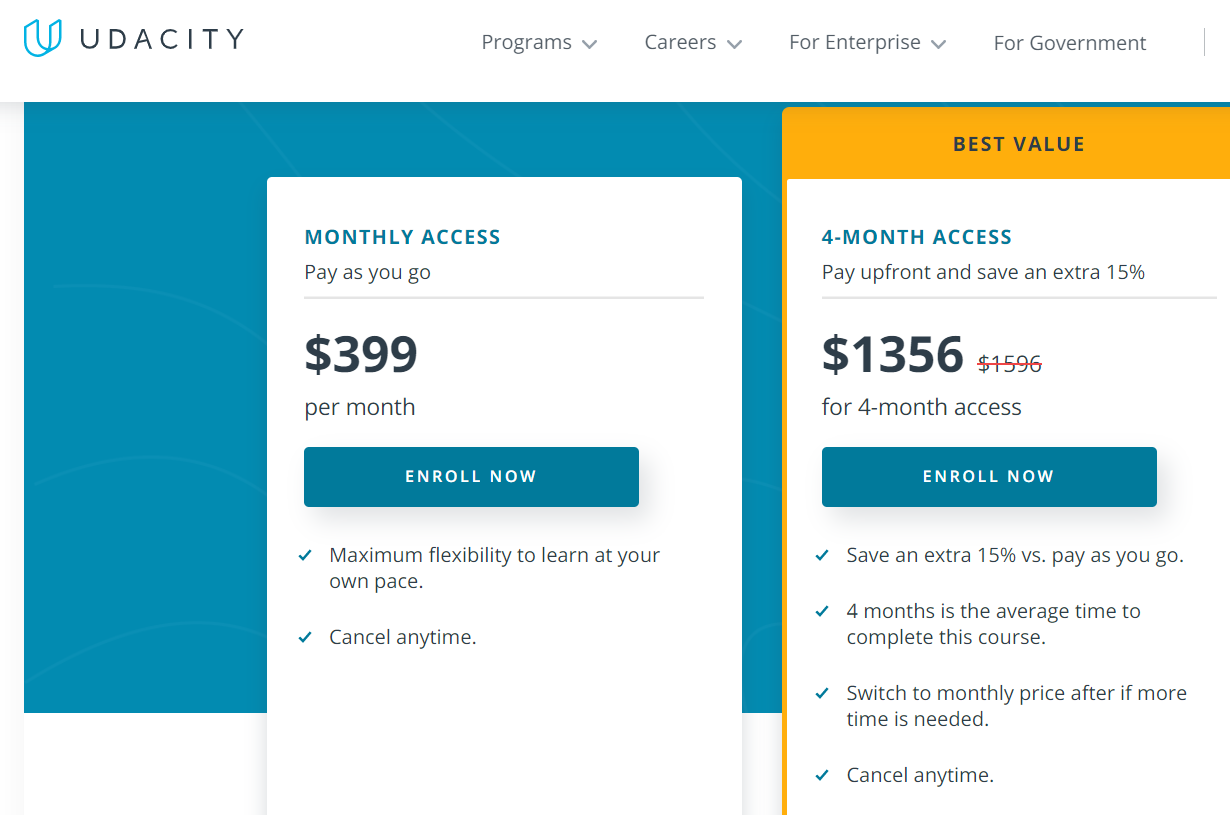
There is a 15% discount for paying the entire course’s fees upfront, which can make them slightly more affordable. Udacity also offers a number of scholarships, which can make courses more accessible if you meet the requirements.
Verdict
Udemy is by far the better option if you’re on a tight budget – just bear in mind that the more fragmentary nature of Udemy courses means you may have to take several to cover subjects in the same depth as a single Udacity course. Lifetime access and money-back guarantees also make it easier to get your money’s worth from Udemy.
This said, there are fair cheaper and better options than both. For example, Zenva offers a subscription to all 250+ courses on their platform for a fraction of the cost. Plus, this comes with supplemental learning materials (quizzes, live coding exercises), guided learning pathways, access to course mentors, and more.
Udemy Vs Udacity: Progression & Development
When learning to code, it’s important that you’re constantly developing your skills, not just going over the basics again and again. Udemy and Udacity handle this progression in very different ways, so let’s explore their approaches to development.
Udemy
Since all Udemy courses are provided by individual instructors, there isn’t much in the way of a clear learning framework to ensure you progress your skills and learn everything that you need to know. It’s entirely up to you to curate courses that steadily develop your essential skills.
In terms of career development, Udemy does offer some benefits – for example, their paid courses provide completion certificates that you can add to your resume. However, this doesn’t apply to free courses.
Udacity
Progression and development is Udacity’s core focus, so they offer a lot of guidance and assistance to ensure you’re constantly progressing. Paid courses come with access to services like mentorship, project reviews, resume assistance, and job-searching.
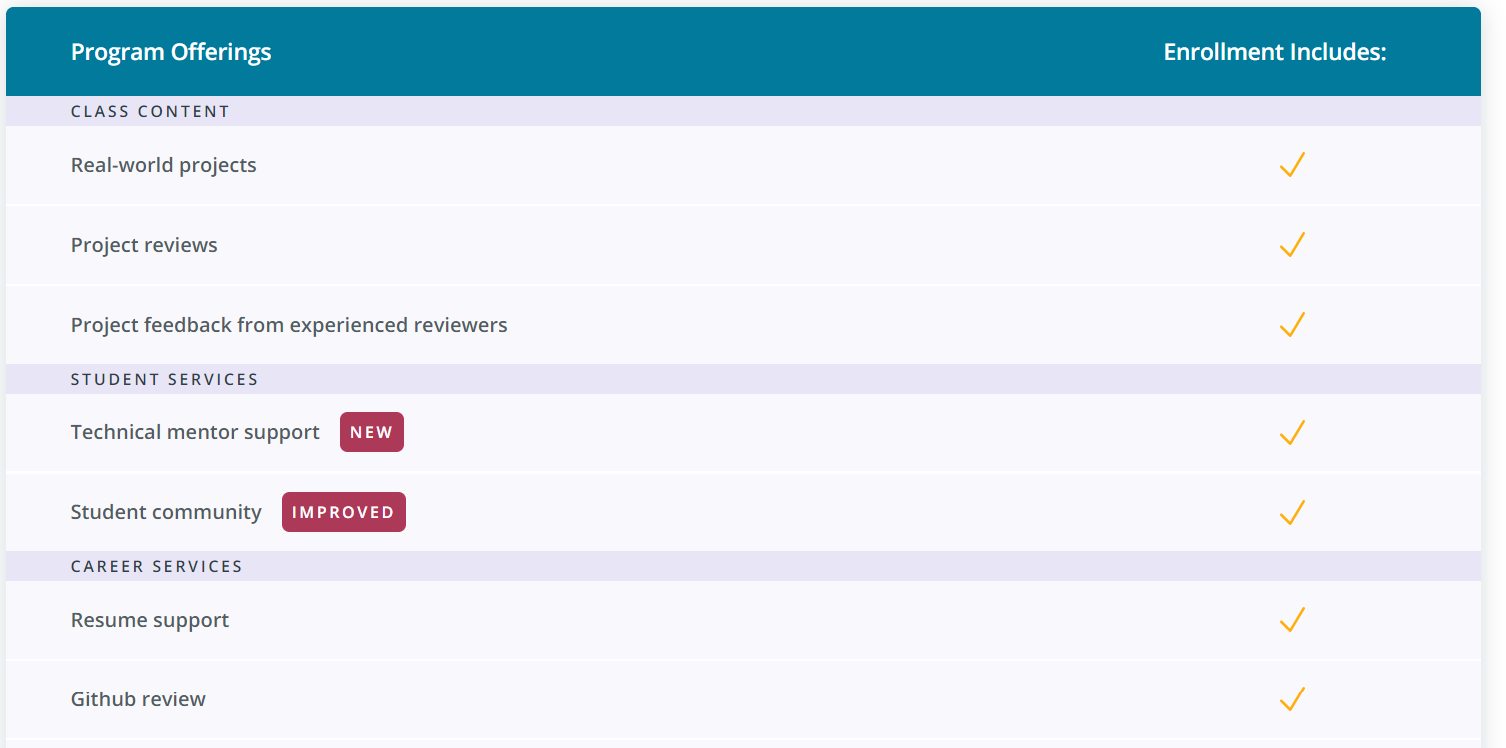
Like Udemy, Udacity’s paid courses provide certification for your resume. While these certificates aren’t accredited, they are widely recognized by employers, which means they can give your career prospects a significant boost.
Verdict
Udacity is the clear winner when it comes to progression and development. Career development is their clear priority, and so their courses are structured much more effectively to help you progress your new skills along a clear framework. What’s more, their certificates are well-respected in the industry, boosting your employability.
That said, per the above point, this service does come at a premium. When it comes to coding as well, sometimes all it takes is building lots of projects. So, platforms such as Zenva may be more cost-effective since the focus is put more toward projects you can use to build up a professional portfolio.
Overall Verdict
Udemy and Udacity both have their own advantages and disadvantages, which makes it hard to state which is definitely better. The right choice largely comes down to your own requirements.
Udemy is best suited to learners looking for a cheaper option to start learning specific skills, especially if their schedule means they need to be able to study flexibly and with no time constraints. The money-back guarantee also means there’s less commitment and less risk of wasting your money.
If you’re serious about a career in coding, however, Udacity may be the better option. With high quality courses, more personal support, clear frameworks for progression, and specific support for career development and employability, it’s worth the investment. Just be wary that it is an investment – the high prices mean you can’t afford to be lax with your learning schedule.
Of course, Udemy and Udacity aren’t your only options for online coding courses. For example, Zenva offers quality content on par with Udacity for a low monthly fee (or a yearly fee) for unlimited access to all the courses on the platform, plus learning support areas, free updates, and real-world projects to gain practical skills. You can also find courses on a variety of topics pertaining to computer science, data science, web development, machine learning, and more.
Whichever online learning platform you choose, make sure to do your research beforehand to find one that best meets your requirements.
Did you come across any errors in this tutorial? Please let us know by completing this form and we’ll look into it!

FINAL DAYS: Unlock coding courses in Unity, Godot, Unreal, Python and more.







